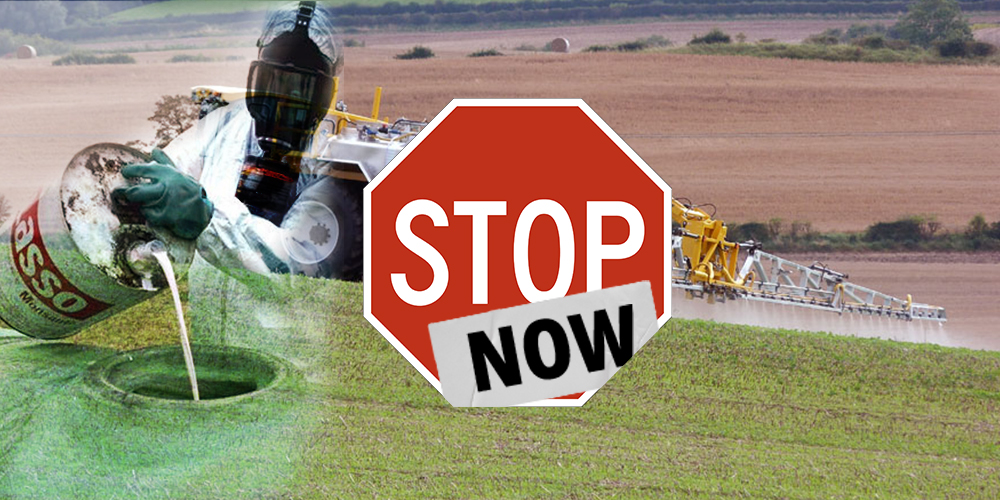The EPA has denied a Citizen’s Petition asking the agency to regulate “inert” pesticide ingredients that can be just as toxic to humans and the environment as the active ingredient. Action Alert!
The Petition, submitted by the Center for Food Safety, called on the EPA to do more to assess the risks of pesticides to human health, wildlife, and the environment by looking at the entire formulation, not just the active ingredient in isolation, as is currently the case. You’d think this is more than a reasonable request for an agency whose stated mission is “to protect human health and the environment,” but last month the EPA flatly denied the Petition. It is yet another instance in which the interests of the chemical industry trumps public health; this needs to stop NOW!
The Petition was filed in 2017. It took a lawsuit for the EPA to even issue a response, in which the agency essentially says that there are too many pesticide formulas for the agency to check them all. Other excuses were also given to keep the status quo: the EPA said that formulas change once a pesticide is sprayed and dispersed, so looking at “inert” ingredients would be misleading. These are the kinds of responses we would expect from industry public relations campaigns, not an agency which is supposed to protect public health and the environment.

This approach by the EPA a complete outrage and is unacceptable given it ignores very clear science around the harms caused by so-called non-active or ‘inert’ ingredients which are often far from being biologically inactive and inert. In 2016, we pointed to research from Professor Gilles-Eric Séralini finding that glyphosate, the active ingredient in Roundup, is actually less toxic than the full Roundup formulation! This is down to the other chemicals that are added to pesticide products in addition to the cited “active” ingredient, these typically being referred to by producers and regulators as “adjuvants” or “inert” ingredients.
So-called inert ingredients perform various functions in a pesticide, acting as solvents, surfactants, and preservatives. Yet the distinction between active ingredients and inert ingredients is largely arbitrary: more than 500 inert ingredients have been or are currently used as active ingredients. Moreover, inert ingredients often make up the majority of a formulation—common products can contain an average 86 percent inert ingredients; agricultural products contain on average about 50 percent inert ingredients. Community groups have found perfluoroalkyl and polyfluoroalkyl substances (PFAS) contaminate local pesticides used extensively to control mosquitoes—even when the EPA said PFAS were not used in that way.
>>>Read our pilot study finding PFAS in supermarket kale
Why does this matter? Because most of the tests required to register a pesticide are performed on the declared active ingredient alone, not the full pesticide formulation. Some short-term, acute exposure tests are done on the entire pesticide formulation; but medium and long-term toxicity tests that look at endpoints such as cancer, reproductive problems, or genetic damage are conducted only on the active ingredient. Further, product labels do not list inert ingredients and are often claimed to be confidential business information.
The work of Prof. Séralini and his colleagues shows just how dangerous these pesticide adjuvants can be. The team found that eight out of nine pesticides tested were up to 1,000 times more toxic to human cells than just the active ingredient. The authors of another review point out that “Numerous studies indicate that inert ingredients may enhance the toxicity of pesticide formulations to the nervous system, the cardiovascular system, mitochondria, genetic material, and hormone systems.”
It’s hard not to notice a pattern here. Whether it’s PFAS contamination, drinking water contaminants, or inert ingredients in pesticides, the EPA is showing us that it is more interested in protecting industries that pollute our world and poisoning our bodies. It is up to us, as citizens, to hold the EPA’s feet to the fire to do better.
Action Alert! Write to Congress and the EPA, telling them we need to review inert ingredients in pesticides and herbicides for their ability to harm human health and the environment. Please send your message immediately.




